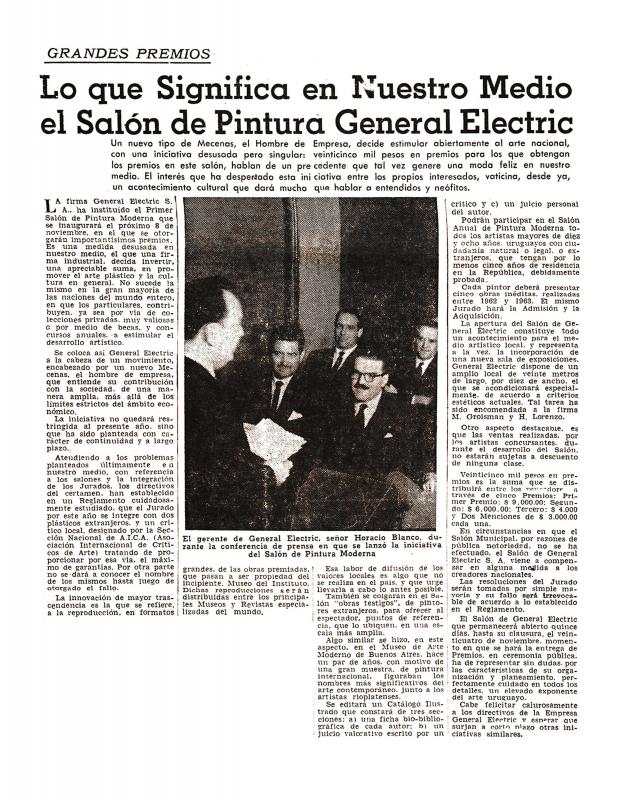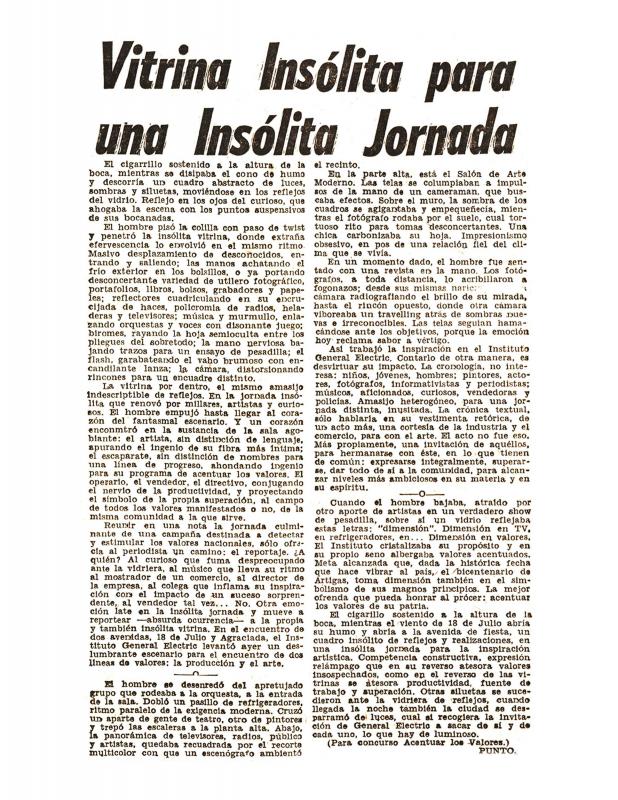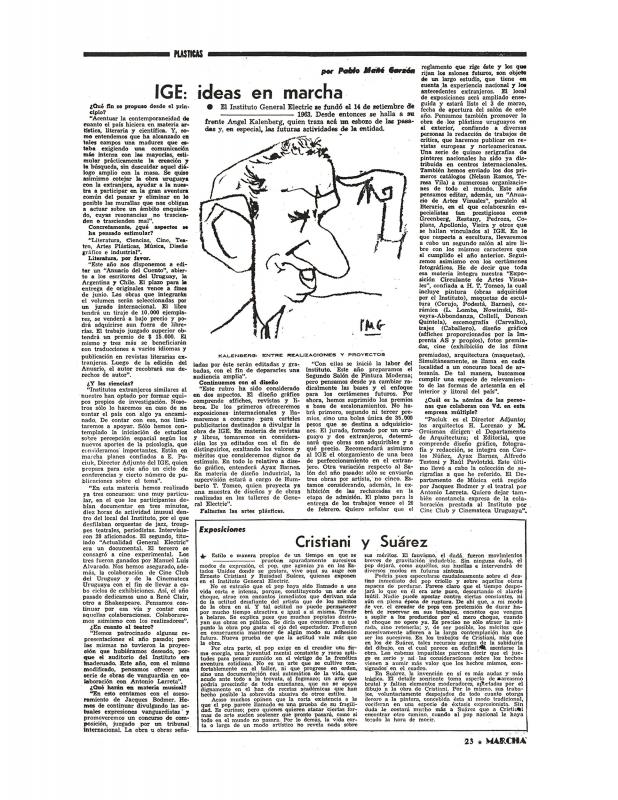The IGE (Instituto General Electric [General Electric Institute]), a private institution, although dependent on the US company, General Electric, established in Uruguay in 1937, which was founded in 1963 with the operational objective of “promoting contemporary culture,” as well as concentrating its efforts and primary activities in the promotion of contemporary art. Similar and following the model of other Anglo-Saxon cultural foundations that were created with private resources, such as M. Knoedler & Co., as were both the IGE in Uruguay as well as the Instituto di Tella in Argentina. These companies began generating activities that mediated between art and the company objectives, particularly targeting the middle class social sectors since these circles supported the diffusion of new artistic trends and networks. The IGE focused primarily on programs with avant-garde ideologies that were expressed through exhibitions, art halls, artistic events, and concerts. The director of the company at the time, Ángel Kalenberg (b. 1936), managed to promote the crystallization and diffusion of this new latent type of art both in the United States, as well as in Europe in modern contemporary art halls of the IGE. Through art competitions and events, Ángel Kalenberg advanced the production of artistic projects that deviated from the predominant conventionalisms that prevailed among the Uruguayan artists of the time. The judges of the II Salón de Pintura del IGE, consisted of the Argentinean Samuel Paz (1926–2007), the American (USA) Stanton Catlin (1915–1997), and the Uruguayan architect Alberto Muñoz del Campo (1889–1975). The award-winning artists were Guiscardo Améndola (1906–1972), Nelson Ramos (1932−2006) and Hermenegildo Sábat (b. 1933). [Please refer to the ICAA digital archive for the following texts: “Lo que significa en Nuestro Medio el Salón de Pintura General Electric” (unsigned) (doc. no. 1244873), “Vitrina insólita para una insólita jornada,” by Punto (doc. no. 1244817), and “IGE: Ideas en Marcha,” by Pablo Mañe Garzón (doc. no. 1244837)].



